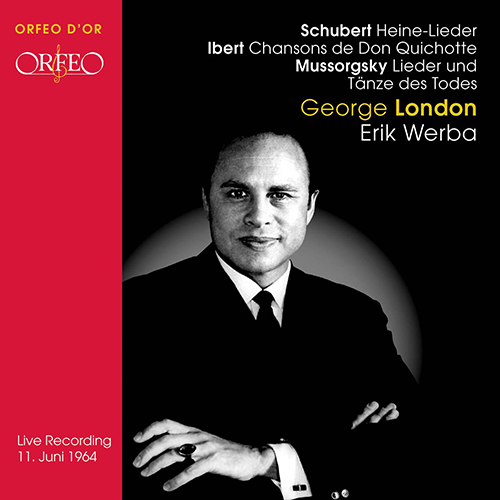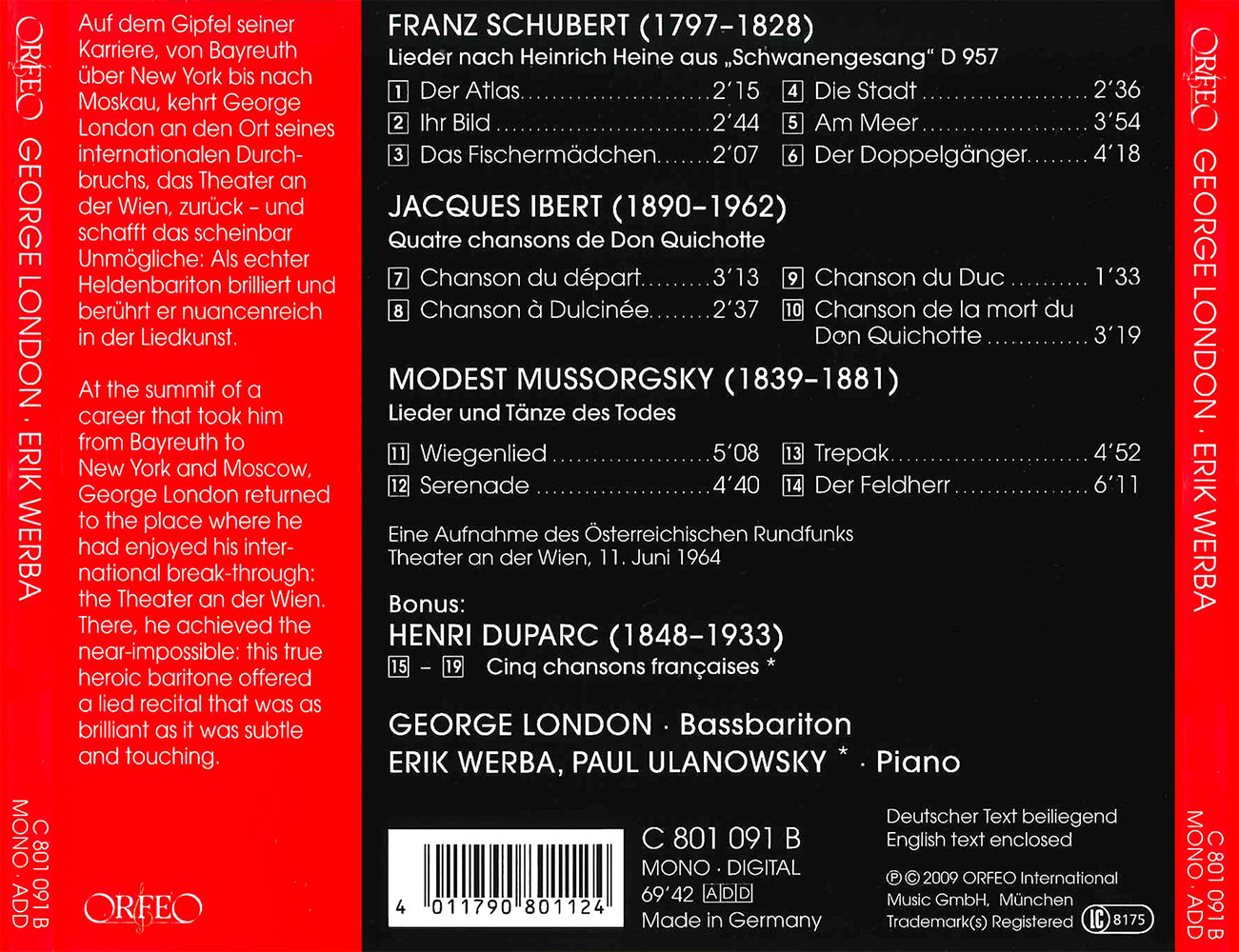Composer(s):
Artist(s):
Genre(s):
Film and TV Music; Vocal
Period(s):
20th Century; Renaissance (1400-1600); Romantic
Label:
Orfeo
Catalogue No:
C801091B
Barcode:
4011790801124
Release Date:
01/2009
Available Format(s):
CD
Schubert: Heine-Lieder; Ibert: Chansons de Don Quichitte / Mussorgsky: Lieder und Tanze des Todes
Schubert, Franz
Schwanengesang, D. 957 (excerpts)
Ibert, Jacques
Chansons de Don Quichotte et Chanson de Sancho (excerpts)
Mussorgsky, Modest Petrovich
Pesni i plyaski smerti (Songs and Dances of Death)
Duparc, Henri
L'Invitation au voyage
Phidyle (version for voice and piano)
Chanson triste (version for voice and piano)
Extase
Le manoir de Rosemonde
Total Playing Time: 01:08:04

















